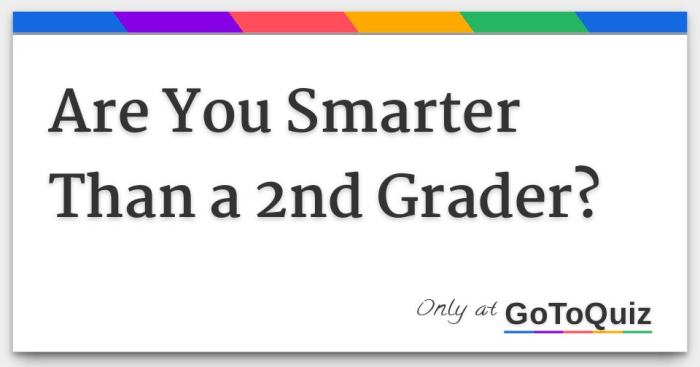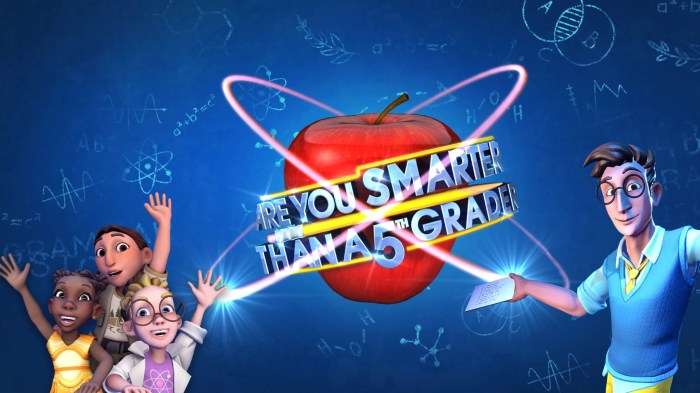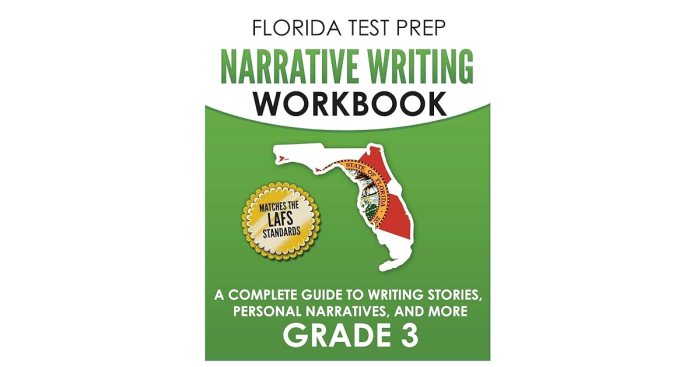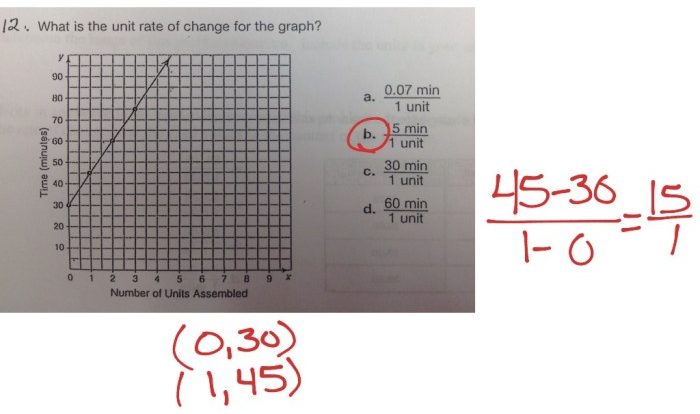Are you smarter than a second grader? This intriguing question delves into the complex world of cognitive development and academic achievement in early childhood. By examining the second-grade curriculum, cognitive abilities, standardized testing, individual differences in intelligence, and the role of education and experience, we uncover the factors that shape a child’s intellectual growth and academic success.
Second graders embark on a journey of discovery, encountering key subjects that lay the foundation for future learning. Math, reading, writing, and science concepts challenge their young minds, fostering problem-solving skills, critical thinking, and a thirst for knowledge.
Second Grade Curriculum: Are You Smarter Than A Second Grader
The second grade curriculum focuses on building foundational skills in core academic areas:
Math
- Addition and subtraction within 100
- Multiplication and division of small numbers
- Measurement of length, weight, and volume
- Basic geometry concepts (e.g., shapes, angles)
Reading
- Fluency in reading simple texts
- Comprehension of main ideas and details
- Vocabulary development
- Basic writing skills (e.g., sentence structure, punctuation)
Writing
- Narrative writing (e.g., stories, personal experiences)
- Informational writing (e.g., reports, summaries)
- Letter writing
- Use of correct grammar and punctuation
Science, Are you smarter than a second grader
- Life science (e.g., animals, plants, ecosystems)
- Earth science (e.g., weather, rocks, soil)
- Physical science (e.g., magnetism, sound, light)
- Basic scientific inquiry skills (e.g., observation, experimentation)
Cognitive Development in Second Graders
Second graders exhibit significant cognitive growth:
Cognitive Abilities
- Improved problem-solving skills
- Enhanced memory and recall
- Developing attention spans
- Increased ability to make inferences and draw conclusions
Comparison to Adults
- Second graders have shorter attention spans and less efficient memory than adults.
- Their problem-solving abilities are more concrete and less abstract than adults.
- However, second graders are rapidly developing their cognitive skills and have the potential to achieve adult-like levels of cognitive functioning with appropriate support and experiences.
Standardized Testing and Second Graders
Standardized tests assess academic progress and identify areas for improvement:
Purpose
- Measure student achievement in core subjects
- Provide feedback to teachers and parents
- Identify students who may need additional support
Limitations
- Tests are not perfect and can be biased
- Scores can be influenced by factors outside of student ability (e.g., test anxiety, socioeconomic status)
- Tests do not measure all aspects of intelligence or academic achievement
Individual Differences in Intelligence

Intelligence is not a fixed trait but a complex construct influenced by multiple factors:
Multiple Intelligences
Second graders may exhibit different levels of intelligence in different areas, such as:
- Verbal intelligence
- Mathematical intelligence
- Spatial intelligence
- Musical intelligence
The Role of Education and Experience

Education and experiences can enhance cognitive abilities and academic performance:
Targeted Activities
- Enrichment activities (e.g., puzzles, games, reading) can stimulate cognitive development.
- Problem-solving exercises can improve problem-solving skills.
- Memory games can enhance memory and recall.
Cultural and Socioeconomic Factors

Cultural and socioeconomic factors can influence educational opportunities and outcomes:
Impact on Education
- Cultural values and beliefs can shape educational experiences.
- Socioeconomic status can affect access to quality education and resources.
Importance of Addressing
Addressing these factors is crucial to ensure equitable access to quality education and reduce achievement gaps.
FAQ Explained
What are the key subjects covered in the second-grade curriculum?
Math, reading, writing, and science.
How do second graders’ problem-solving skills compare to adults?
Second graders are developing their problem-solving skills and may use different strategies than adults.
What is the purpose of standardized testing in the second grade?
To measure academic progress and identify areas for improvement.
How can education and experience enhance cognitive abilities?
Education and experiences provide opportunities for practice, exploration, and skill development.
How do cultural and socioeconomic factors influence academic outcomes?
Cultural and socioeconomic factors can impact access to educational resources and support.


